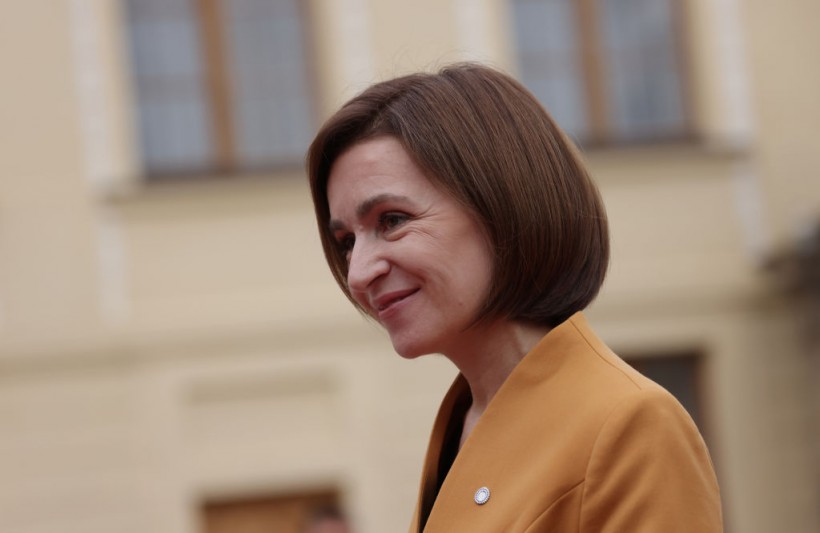The pro-West government of Moldovan President Maia Sandu touts its election gains in local races despite some heavy losses in big cities.
The nation's elections on Sunday were meant to select 12,000 local officials, including the mayor of Chisinau, the capital of Moldova. The races were seen as a test of Sandu's pro-European course and took place under a series of allegations of Russian interference. In response, Moscow has denied any involvement in the elections.
Moldova's Local Elections

The pro-West government of Moldovan President Maia Sandu touted major gains in elections over the weekend despite losing out in big cities, including the capital.
The Moldovan president's ruling Party of Action and Solidarity (PAS) won more than 40% of the votes that were cast for mayors, city councilors, and district and village councils. In a preliminary report, the Organization for Security and Cooperation in Europe said that campaigning was distorted by an "influx of illicit and foreign funds and the monetary incentives used to influence voters' choice."
Prior to the weekend vote, Moldovan officials accused Russia of "buying" votes by funneling $5 million to alleged "criminal groups." These were supposedly led by fugitive businessman Ilan Shor who was previously convicted in absentia of being involved in bank fraud in the country, as per Reuters.
Two days prior to the vote, Moldovan authorities barred the Chance party which is linked to Shor on security grounds. It was a decision that the OSCE said had "limited voters' choice and resulted in uncontested races in some smaller localities."
It added that the blanket exclusion of candidates without a possibility for effective legal remedy is in direct contrast to OSCE commitments and international standards. Igor Grosu, the speaker of Moldova's parliament, hailed the ruling party's performance in the election despite the Kremlin's alleged attempts to interfere.
During a press conference, Grosu said that the PAS and pro-European candidates managed to achieve the best result in the country despite unprecedented interference by a foreign state. Sandu's party was able to win mayoral seats in the first round of voting in 244 of 898 villages, towns, and cities.
Read Also: Canada: Thousands of Montreal Teachers on Strike for Higher Wages, Adequate Students' Resources
Losing Out on Big Cities
Those particular gains were mostly made in rural areas but the party's candidates failed to win control of the big cities as well as the capital. In Chisinau, incumbent mayor Ion Ceban said that he had defeated Lilian Carp of PAS and narrowly avoided a run-off with 50.62% of the vote, according to Yahoo News.
In several other cities, the mayoral race in Balti went on to a second round after the PAS party contender crashed out. In Cahul, the mayor's seat was taken by an independent candidate. And in Orhei, an independent candidate who was linked to Shor was able to win the first round.
Before Ceban set up a pro-European party last year, he was widely considered to have held a pro-Russian stance and many believe that he still holds on to that view. Moldova has looked to foster closer ties with its Western partners in recent years and was granted EU candidate status in June last year.
The minister of infrastructure and regional development, Andrei Spinu, said that the overall election results were considered to be a success for PAS despite losing out for the mayoral position in Chisinau, said the Associated Press.
Related Article: King Charles To Preside Over State Opening of Parliament








